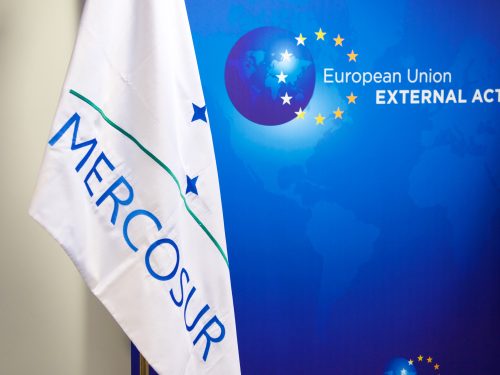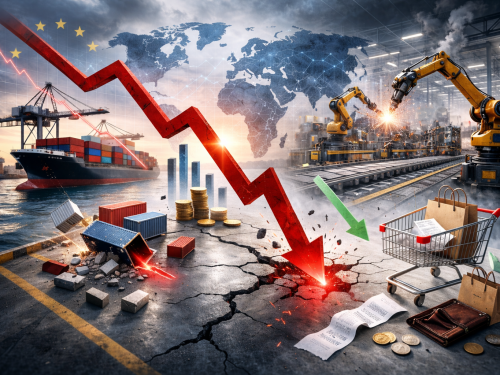News
Share on
Today the Director General of Confindustria, Francesca Mariotti, spoke at a Hearing before the Finance and Industry Committees of the Senate of the Republic in the context of the examination of the bill to convert Decree-Law No. 21 of 21 March 2022, so-called. Energy Decree-Law 2.
The so-called Energy Decree 2 is set in a dramatic context. The 'costs of the conflict' in Ukraine for the Italian production system are impressive, as revealed by a survey conducted by Confindustria, to which almost 2,000 member companies responded. More than 16% of the companies state that they have already reduced their production and, among these, 3 out of 10 report a drop of more than 20%. Instead, Among those that have not yet reduced it, more than 1/3 indicate that they can only continue for 3 months without substantial interruptions. As for the costs of commodityunprecedented price dynamics, particularly for the natural gas, which exhibits rates of change at 4 figures (+1.217% on average over the pre-Covid conflict period) and that of Brent, which is in 3 digits (+104%), measure the order of magnitude of the shock that is affecting economic activity. In this context, the decree-law contains measures, not yet structuralaimed at containing energy prices and coping with this exceptionally unstable situation.
The need for a comprehensive intervention.
The Decree extends previous measures and introduces new ones. Overall, it broadens the range of subjects, The new regulations unfortunately confirm the conjunctural approach of previous government interventions. A approach that we have already assessed as insufficientin light of the genesis, size and foreseeable development of this price shock. Support measures will have to take on a more targeted character, but above all durable and robust in terms of the resources employed. This is also taking into account the intensity of the interventions put in place by our competitors (above all, France and Germany). It is therefore essential to extend the timeframe of the interventions, ensuring a horizon of at least one year, to make planning and, in many cases, the very continuity of production activities possible. In this sense, also in the light of the discussion on the DEF, a wide-ranging economic manoeuvre that allocates adequate resources to at least mitigate the effects of this conjuncture, which will not end with the second quarter.
Our energy proposals.
We reiterate the need to follow up on proposals that Confindustria has long formulated:
- making available to the so-called electro-intensive industries 25 Twh (currently available to the GSE) at a pre-established price of 50 €/Mwh. In return for this benefit, lasting 2-3 years, Italian industry is committed to developing investments for a production capacity equivalent to 12 GW of photovoltaic production and 5 GW of wind power production. This request was partially answered in the conversion of DL Energia 1, with amendments providing for the release of energy quantities at capped prices for industrial sectors, without however providing precise indications on pricing transfer to energy-intensive sectors and, above all, with a timing implementation certainly not emergency.
- accompany the measure of the Energy Decree 1 which, appropriately enough, provides for the increase of domestic gas production, with the sale of this to the industrial sectors, for 10 years, and a bridging measure (e.g, the extension of tax credits provided to mitigate energy costs) until the new volumes are physically available.
- the increase of subsidies for 'energy-intensive' sectors with reference to parafiscal components of the electricity bill, providing, for the years 2022 and 2023, a level of contribution to general system charges at the rate of 0.5% for companies in the electricity intensity classes calculated with respect to gross value added (GVA) and at the rate of 15% for companies in the electricity intensity classes calculated with respect to turnover, as provided for in the European guidelines on state aid for energy and the environment.
- to reach the targets of the renewable sources provided for in the NRP and reduce the energy bill, authorisation processes must be accelerated. Reform of the electricity market remains crucial. It is necessary to accelerate the development of new electricity generation capacity from renewable sources and to identify without delay suitable areas where plants can be located.
These national measures, while indispensable, must be complemented with initiatives and decisions to European level. In particular:
- interventions to curb speculative manoeuvres in the energy and CO2 emission (ETS mechanism).
- European action for coordinated price regulation. The goal is a regulated common gas price, which protects industry and employees from speculative manoeuvres and abnormal economic conditions with respect to supply.
- A suspension of the ETS mechanismto take all market-compatible measures to limit recent speculative effects, reviewing the functioning of the Market Stability Reserve to enhance its balancing function.
The extraordinary contribution against high bills to be reviewed.
As for the measures contained in the Decree, the introduction of of the extraordinary levy on overprofits as a result of rising energy prices. The parameters chosen raise questions as to their effectiveness in relation to the objective and doubts as to the proportionality and reasonableness of the instrument, since, more often than not, they do not seem able to truly measure the extra profits. The mechanism for calculating the extraordinary levy should be reviewed, so as to make it consistent with the ratio of the rule. There are several lines of action that can be taken, starting with the modification of the non-deductibility of the levy, which is not compatible with the constitutional principles on taxation and ability to pay. We also believe that ARERA's supervisory powers should be enhanced.
The need to review prices and terms in public contracts.
In addition to rising energy costs, the war is amplifying the difficulties in finding raw materials and materials. This makes it more difficult to realise planned investments in the execution of public contracts and within the same PNRR. With reference to public contracts, we reiterate the need to identify a mechanism for compensating price increasesof ongoing contracts also for companies in the service and supply sector, as well as a clause allowing for a review of the terms of performance.
Aid for road transport and lower emissions.
The Decree also intervenes to mitigate the effects on thetrucking resulting from the increases in fuels and energy products, first and foremost with the general measure of a temporary reduction in excise duties, applied not only for a single month, but also indiscriminately with respect to the ecological class of the means of transport, thus cancelling the excise refunds intended precisely for lower emissions. This is certainly not a positive sign for haulage companies that have invested in less polluting vehicles.
Golden Power: discipline to be monitored.
Finally, the Decree also intervenes on the discipline of the Golden Power, strengthening its procedural profiles and broadening its scope of application. The result is an overall tightening of the Golden Power discipline, with impacts destined to remain, moreover, even after the emergency phase has passed. In this regard, we understand the need to strengthen the protection of national interests, especially in view of the changed geopolitical context. However, it must be considered that, despite the appreciable innovations concerning procedural profiles, the new focus on domestic corporate transactions risks affecting private autonomy and freedom of enterprise in a manner that is not always proportionate and reasonable. Therefore, we believe that, at the very least, constant - and transparent - monitoring is necessary.
In conclusion, we trust that the parliamentary debate will lead to unity of intent on a more solid strategy to support the production system in this difficult and, in many respects, unprecedented conjuncture.




